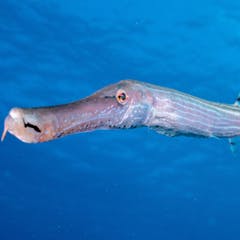
Articles on Ocean acidification
Displaying 1 - 20 of 100 articles

Any decision to authorise offshore drilling and other activities contributing to climate change will now need to be assessed under the law of the sea in addition to international climate agreements.

Global warming is making the oceans more acidic. Our work aims to design realistic systems to reduce this acidity, and remove carbon from the atmosphere in the process.

Just as the world’s zoos breed critically endangered animals in captivity to repopulate the wild, scientists are building a global effort to freeze corals for reef restoration.

One set of ideas runs counter to the mainstream consensus that technology will save us from climate change. Can degrowth ever win enough converts to persuade humanity to change course?

The first comprehensive assessment of trends in Southern Ocean ecosystems reveals an urgent need to address climate change. The summary for policymakers can guide decision-makers.

We’ve become so good at using the Earth’s resources we’re endangering the systems we rely on.

New Zealand’s kelp forests provide food and shelter for many marine species of commercial and cultural value. But they are at risk from warming oceans, run-off from land and marine invaders.

Trumpetfish are the first known predator to hide behind another animal when hunting.

Marine governance in New Zealand is fragmented, with several agencies operating under various statutes. But a more collaborative, ecosystem-based approach to better protect the ocean is emerging.

Climate change is making oceans more acidic globally. Now, scientists are finding that large storms can send pulses of acidic water into bays and estuaries, further stressing fish and shellfish.

The ocean twilight zone could store vast amounts of carbon captured from the atmosphere, but first we need a 4D monitoring system to ensure ramping up carbon storage does no harm.

The report synthesises the latest science about Australia’s climate – and paints a worrying picture.

There is only a single mooring managed by French researchers that monitors the impacts of climate change on West African Canary Current.

From planting mangroves to dumping minerals in the ocean, there are lots of ideas for ocean carbon dioxide removal – and even more questions.

Humans have failed to take good care of the ocean — and the environment at large — because we undervalue its goods and services.

Tiny seashells draw carbon to the ocean floor when they die. This is the most significant geological process of carbon storage today, and it might increase in a warmer world, as it did in the past.

For the opening of the One Ocean Summit in Brest from February 9 to 11, 2022, France’s marine research institute looks at promising avenues of research to protect the planet’s largest ecosystem.

Sponges are ancient marine animals and have already shown robustness against stresses from climate change. New research now shows they can also tolerate low-oxygen conditions.

The old ways of keeping giant clam species healthy won’t work with climate change. We need new techniques - and fast.

The ocean has been buffering us from the impacts of climate change, but it is reaching the limit of this capacity. Integrating ocean and climate policy will be crucial.





